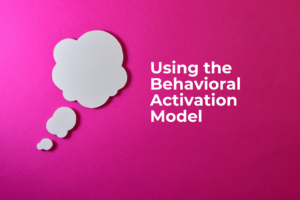The Silent Weight: How Shame Holds Retired Athletes and Coaches Back
Shame corrodes the very part of us that believes we are capable of change.
— Brené Brown
We don’t talk about shame much in sports.
We talk about grit.
We talk about winning.
We talk about “leaving it all on the field.”
But shame?
That’s not part of the highlight reel.
And yet, for many athletes and coaches after sport, shame is the invisible weight we carry into every decision, every relationship, and every opportunity.
What Shame Actually Is
Shame is different from guilt.
Guilt says, “I did something bad.”
Shame says, “I am bad.”
Researcher Brené Brown defines shame as:
“The intensely painful feeling or experience of believing we are flawed and therefore unworthy of love and belonging.”
It’s the voice that says:
“You’re not enough without your sport.”
“You are a failure.”
“You should have been further along by now.”
Shame isn’t about what happened.
It’s about what we believe that event says about who we are.
How Shames Shows Up For Athletes and Coaches
When you’ve lived your whole life under a at the field or on the court, your worth becomes measured in performance:
Points. Wins. Records. Recognition.
Leaving sports means losing those markers.
Without them, many athletes and coaches ask:
“If I’m not competing, achieving, or producing… who am I?”
This gap between who we were and who we think we should be becomes fertile ground for shame.
Keeping Shame in the Dark
When I left coaching, I felt a deep shame that I hadn’t figured out my next move.
I was broke.
I kept my shame and anxiety hidden because I was embarrassed. I didn’t want anyone to know that I was struggling.
That shame didn’t just keep me quiet. It kept me small.
I turned down trips I really wanted to take because I couldn’t afford them.
Shame convinced me that my value had expired the moment I stepped away from the game.
The Problem with Shame
Shame thrives in silence and secrecy.
It makes you pull away from others.
It keeps you from asking for help.
It convinces you that your struggles are proof you’re broken.
Over time, it turns opportunities into threats.
You stop trying new things, not because you can’t, but because you’re afraid they’ll confirm your worst fear:
That you don’t belong.
Recognizing Shame in Yourself
Shame doesn’t always shout. Sometimes it whispers. Look for signs like:
You downplay your achievements.
You avoid situations where you might fail.
You compare yourself constantly to where you used to be.
You feel the need to explain or justify why you left your sport or coaching.
You feel stuck, but the thought of change feels like exposure.
Overcoming Shame: A Playbook
Shame loses its power when you bring it into the light.
1. Name It
When you feel that heavy, sinking feeling—PAUSE. Ask yourself:
“Is this guilt or shame?”
Simply naming it starts to loosen its grip.
*Research shows that labeling emotions activates the thinking brain and calms the fear center.*¹
2. Share It with Someone Safe
Talk to someone who won’t judge or try to “fix” you.
Connection counters the isolation shame creates.
If we can share our story with someone who responds with empathy and understanding, shame can’t survive.
3. Rewrite the Story
Shame is fueled by old scripts.
Example: “I left coaching because I couldn’t hack it” becomes “I chose to leave to pursue something more aligned with who I am now.”
For me, one of the biggest rewrites was this:
Feelings and emotions are not weaknesses to be avoided. They are signals to investigate.
What am I feeling? Do I want to feel this way? What needs to change within me? Am I being reactive? Am I being avoidant?
4. Collect Evidence for Your Worth
Keep a list of moments when you showed up with courage, skill, or integrity inside or outside of sports.
The more evidence you collect, the harder it is for shame to argue with the facts.
5. Practice Self-Compassion
When shame says, “You’re not enough,” respond the way you would to a teammate after a tough game: with empathy, not criticism. Some of us are too quick to dismantle ourselves. Let’s try building instead.
Why This Matters for Life After Sport
When you release shame, you create space for curiosity, creativity, risk-taking, and opportunities.
You start saying yes to new roles, new communities, new passions, not because you’re not acknowledging the fears, insecurities, doubt and shame that arises but because you’re no longer controlled by them.
You’re Not Broken
Shame isn’t proof you’re broken.
It’s proof you care.
It’s a sign you’ve attached meaning to your life in sport and now it’s time to create new meaning in life after sport.
You can’t erase shame. But you can walk with it differently.
You can bring it into the light.
You can choose to tell yourself a different story.
Source
Lieberman, M. D. et al. (2007). Social Cognitive and Affective Neuroscience.
Understanding Shame in Retirement
How the Behavioral Activation Model Can Transform Your Post-Athletic Life
Graduating from college and retiring from sports can feel like stepping into an unknown territory.
Essential Reads for Female Athletes Transitioning to a New Career and Life
As a female athlete who has just graduated from college, retired, or is on the
Finding Your Purpose After Athletics
As a retired or soon-to-retire female athlete, the transition from the world of sports to
The Science of Getting Unstuck
Retirement from a sport you’ve dedicated your life to can be a challenging and emotionally





